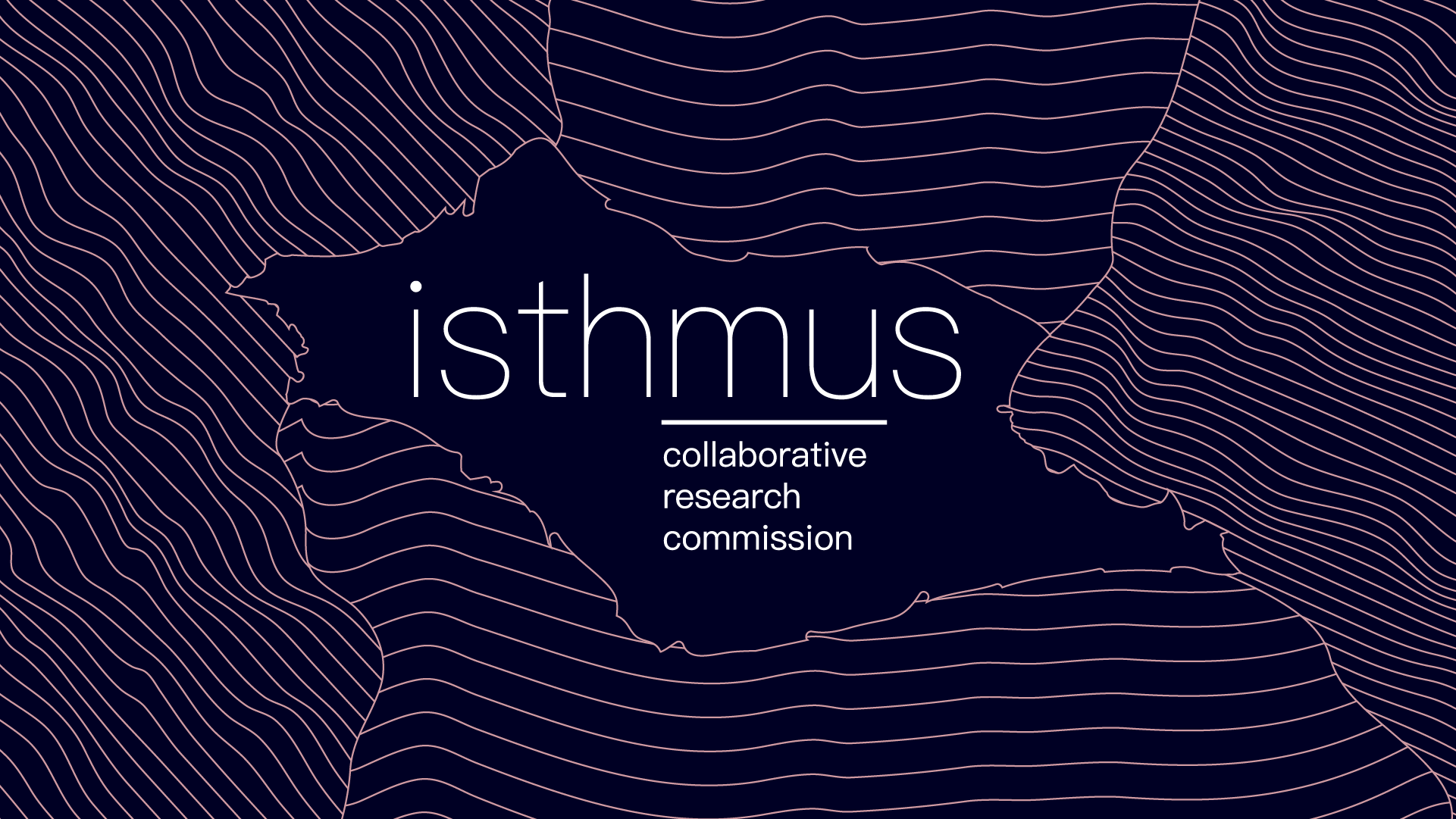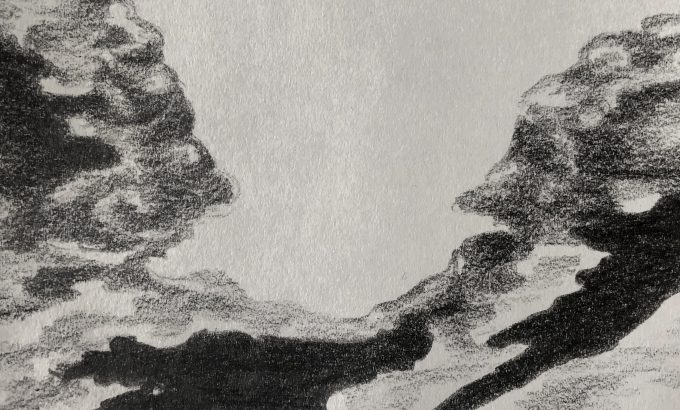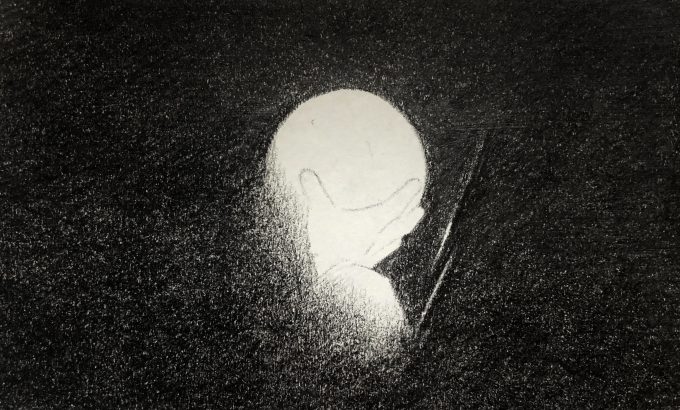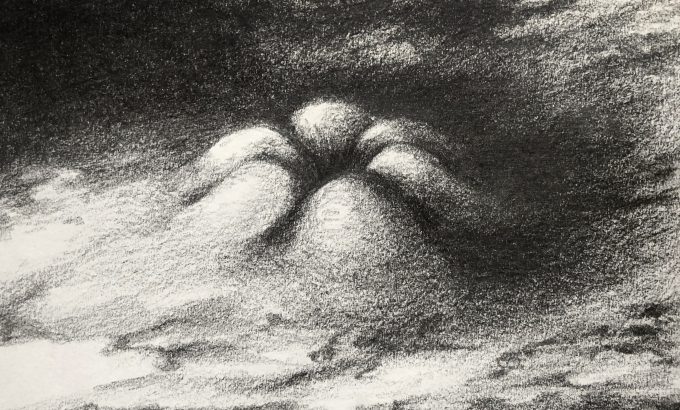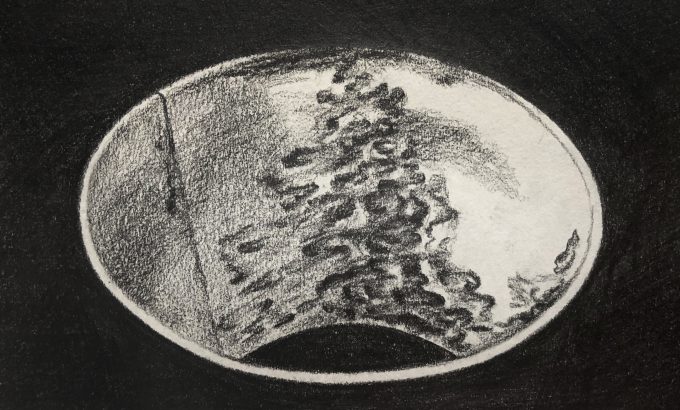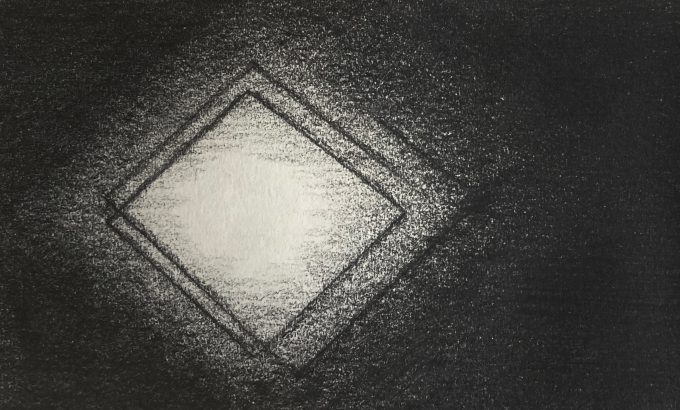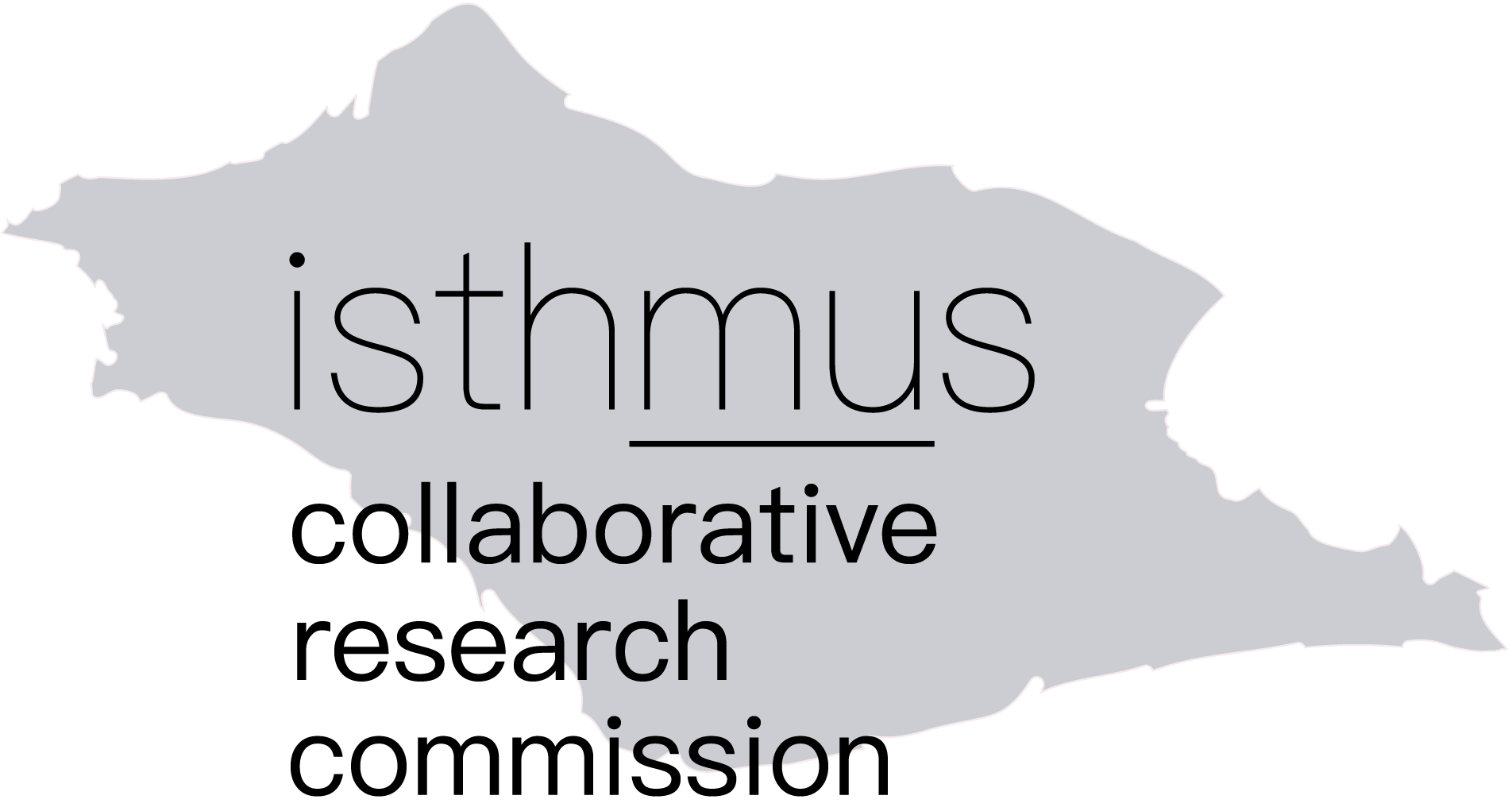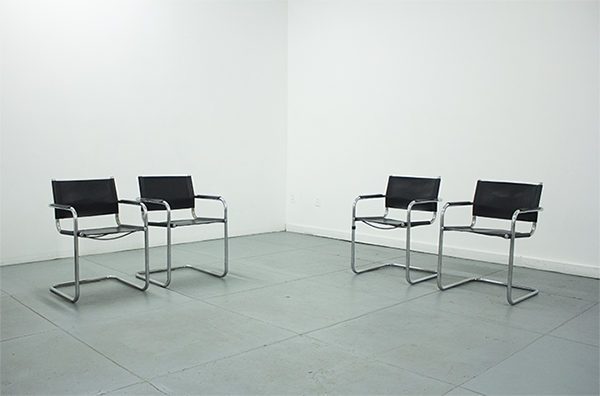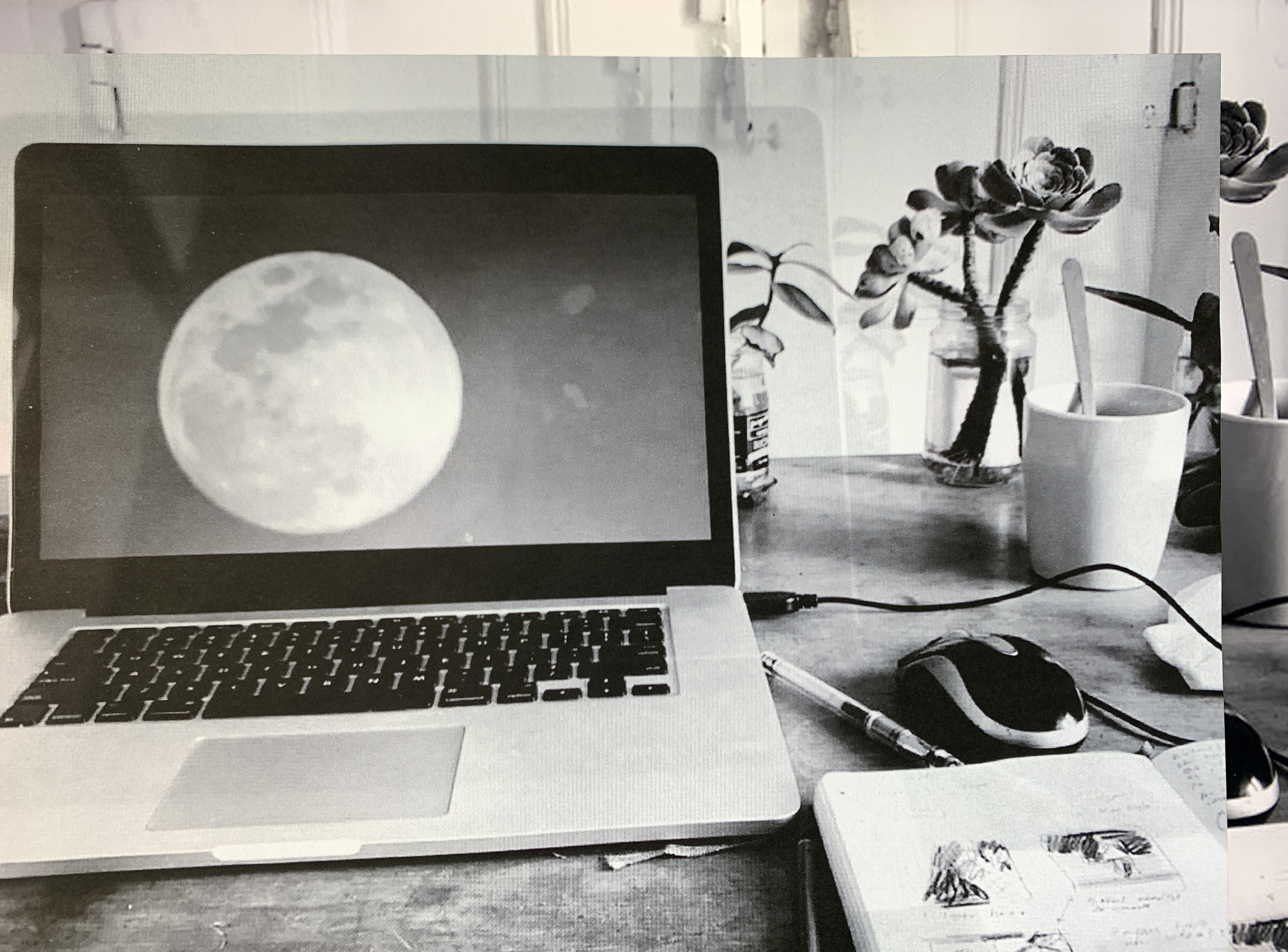isthmus is a collaborative research commission inviting artists whose thinking and work are bolstered by peer exchange and participatory forms of knowledge assembly.
Arriving Elsewhere started in April 2019 as a 10-day collective workshop in Wadi Rum, Jordan. Within a desert area that is often used as an ambiguous backdrop for a range of science-fiction, historical, and political films, we came together with a group of ten artists, writers, and filmmakers to consider how we observe and narrate landscapes. Beginning with the premise that a desert is not a blank space or nowhere, we collectively sought to address the political and historical complexity of the location through our direct experience and distinct subjectivities. Throughout the summer of 2020 the project continued its commitment to exploring this overlap of individual and collective experience, this time in an online form dispersed across a multitude of locations and timezones. Leading up to a live online event on Sunday November 15, this page serves as a constellation of images, texts, and videos—a flow for thinking out loud in the gaps between group intimacy and public presentation.
| 12 November 2020 |
Our tongues were in each other’s mouths.
But this is not for each other, this is for you who I don’t know
or might know.
And I am a diffuse subject who you might know of,
but don’t know.
She said publication is an invitation,
or invocation,
of contingency.
Something to that effect.
So, I guess this is an invocation of contingency.
It’s the only way “public” makes any sense right now.
In the same way that the 11 of us were a contingency of an open call
to consider the relation of image to landscape.
We arrived at a refusal
of landscape
and its disregard for difference
its broad strokes brushing over variances
its all-encompassing claim over the fallacy of a whole.
The dispersal of this contingency looks like this:
It’s like trying to read something through its footnotes only,
piecing together the whole thing through its footnotes.
No, not piecing together.
There is no whole, per se.
The footnotes have a structure of their own
that undermines the notion of a whole.
Like reading, coffee or otherwise.
That’s the magic of it, I guess.
| 3 November 2020 |
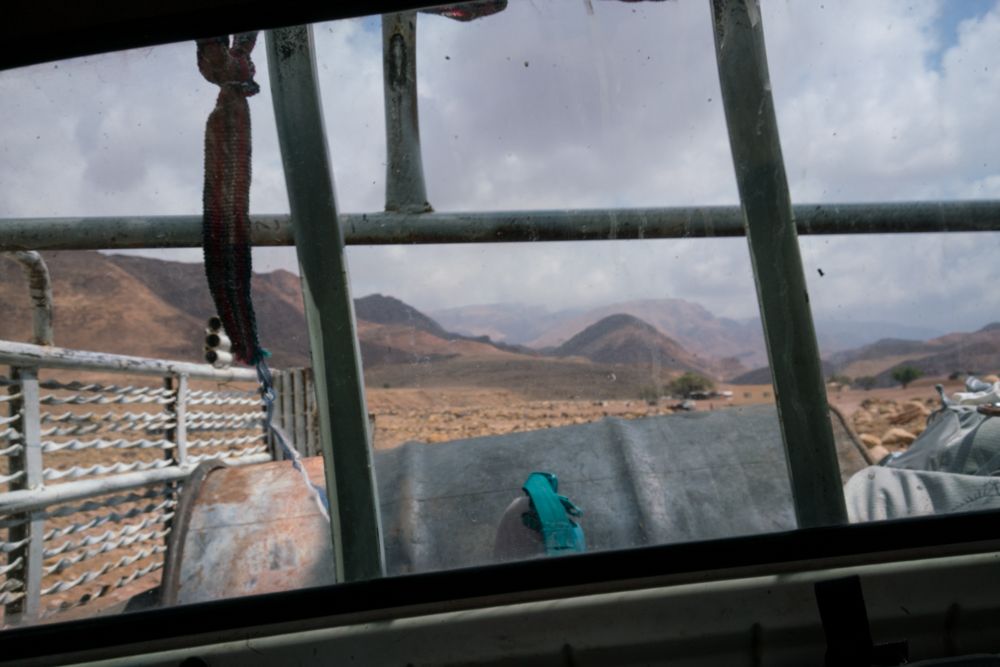

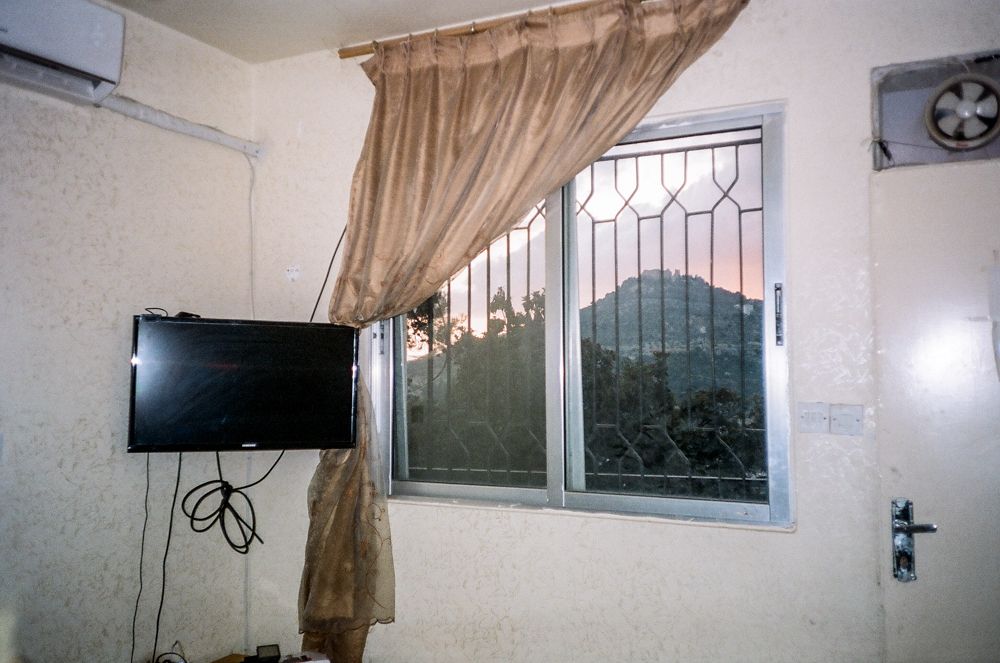

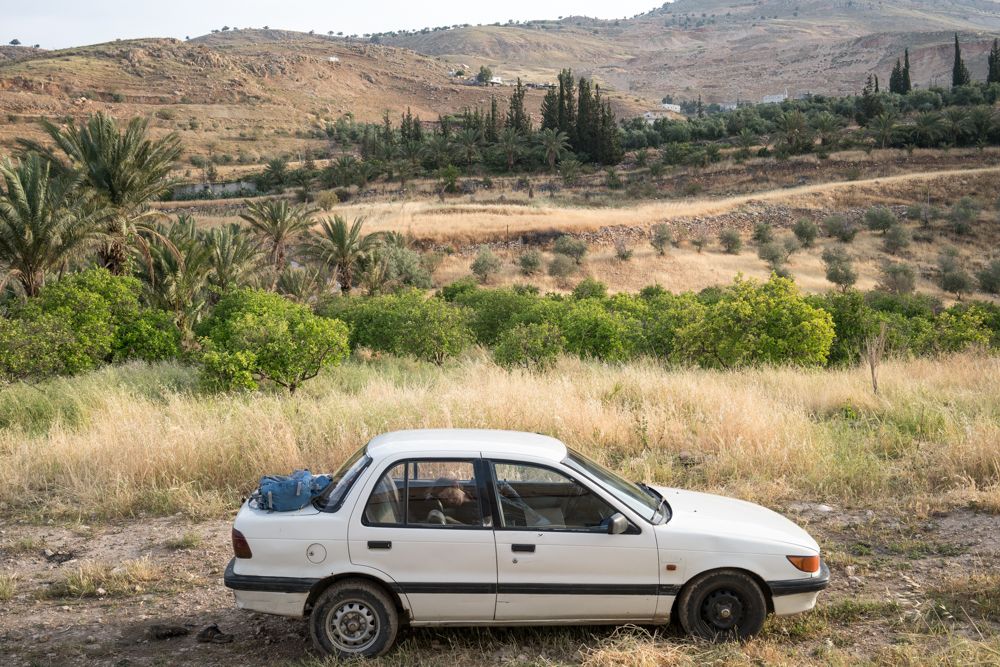

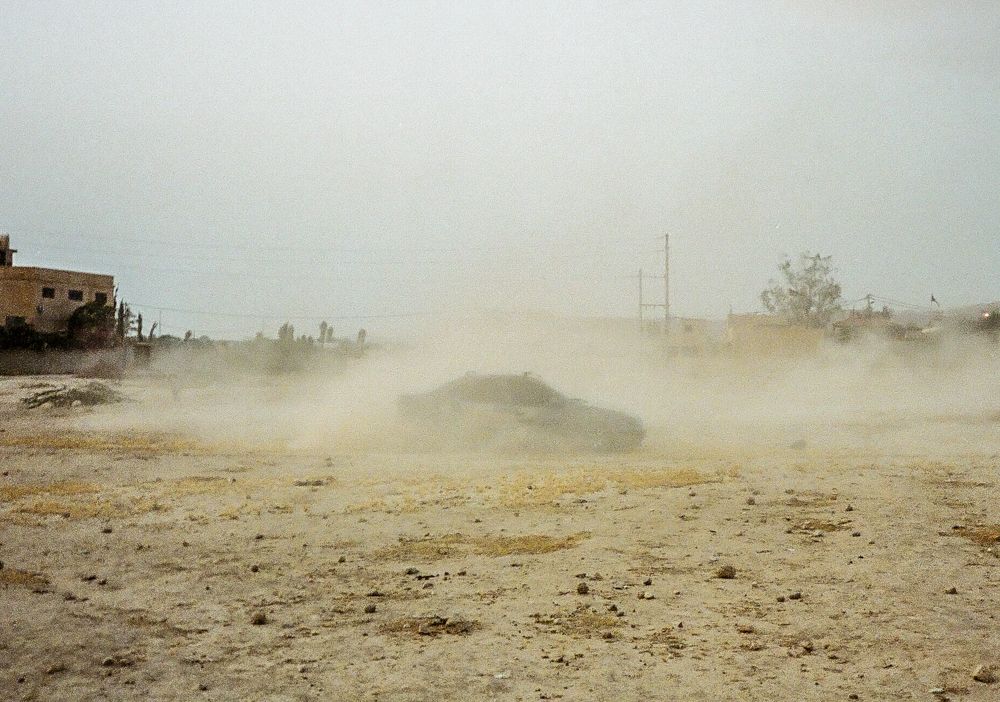

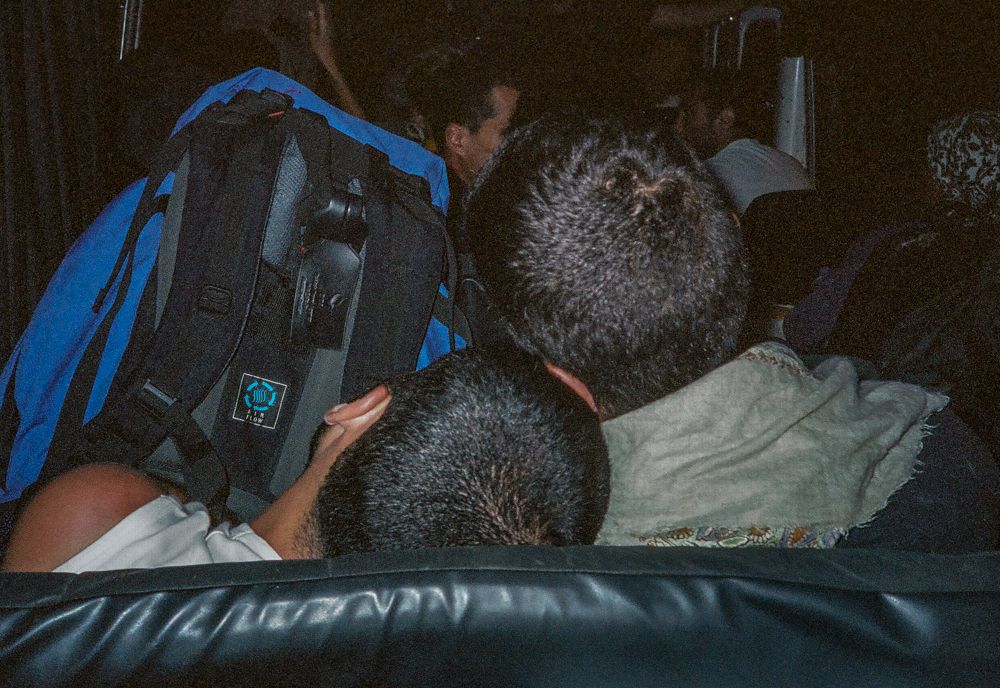



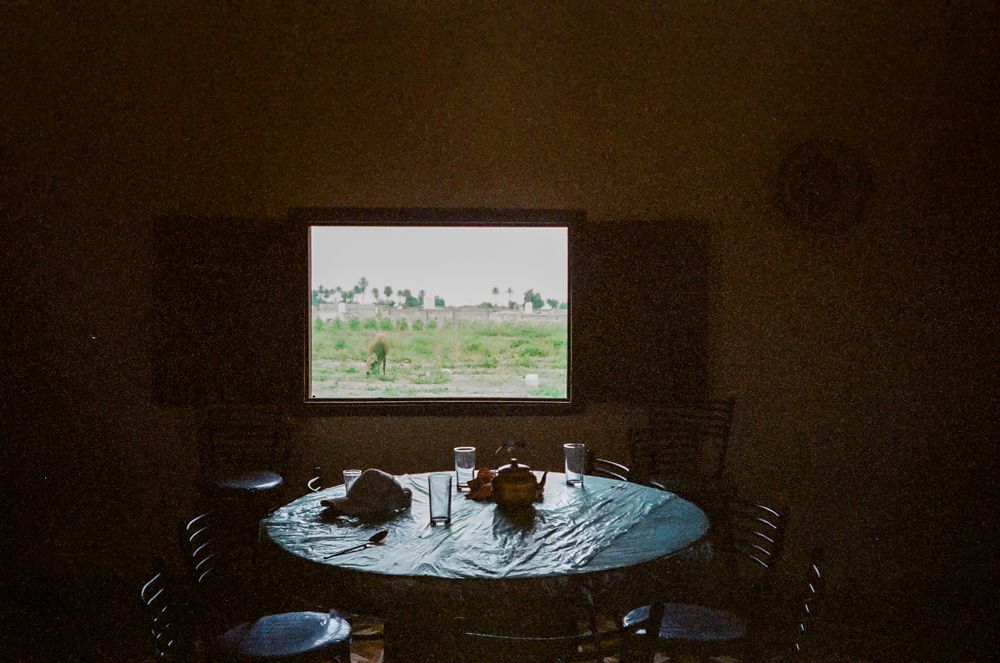
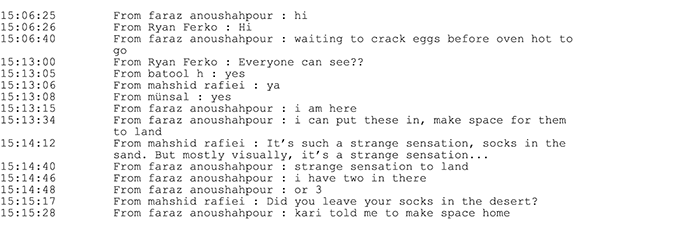
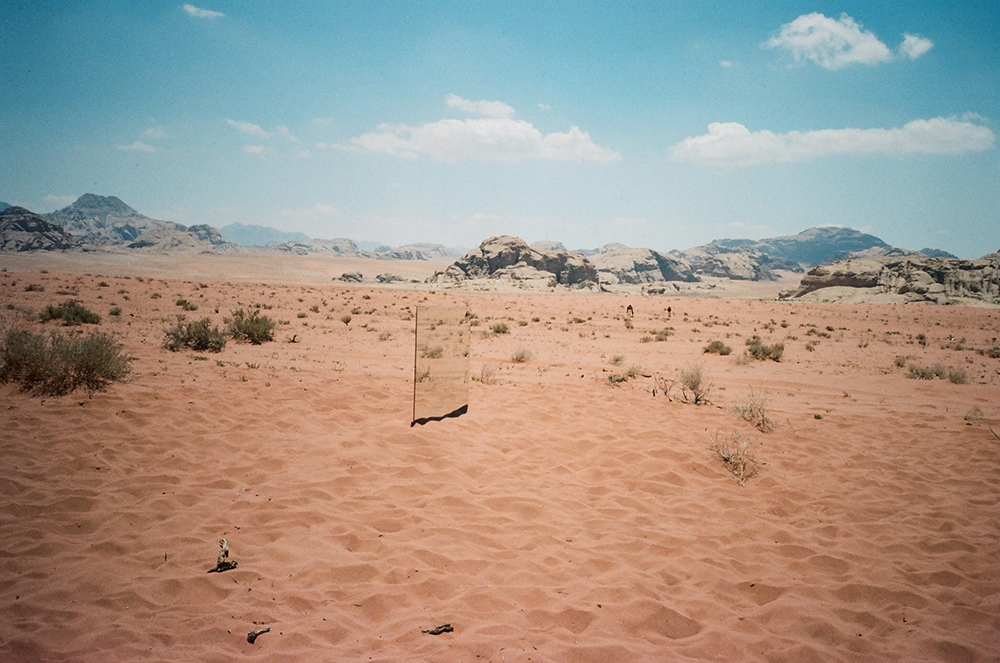
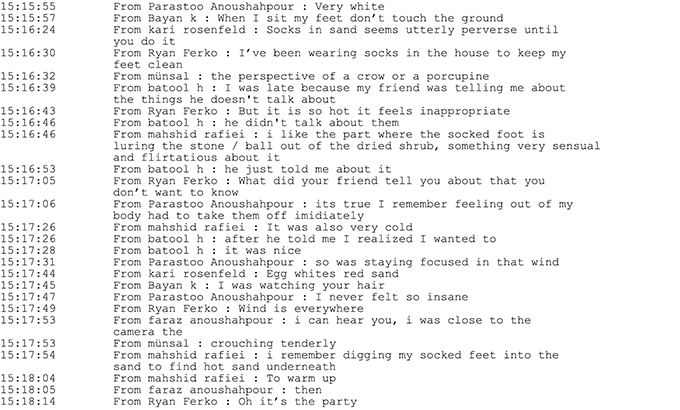
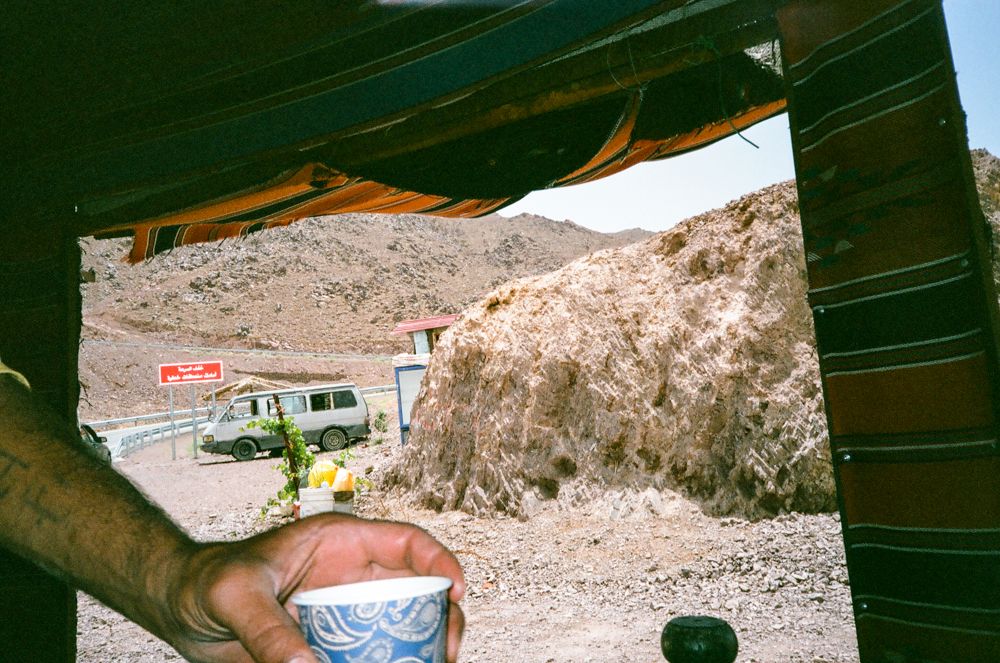
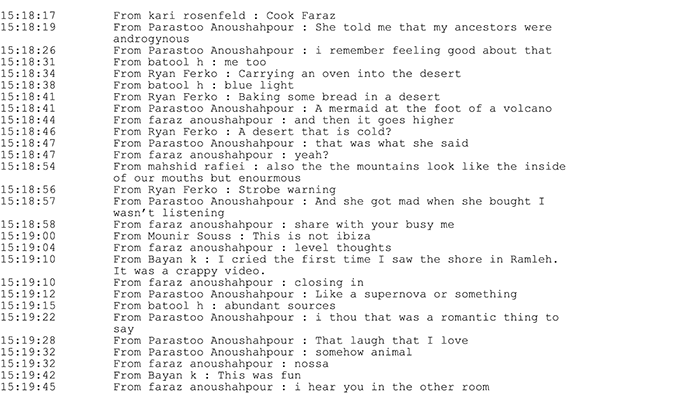
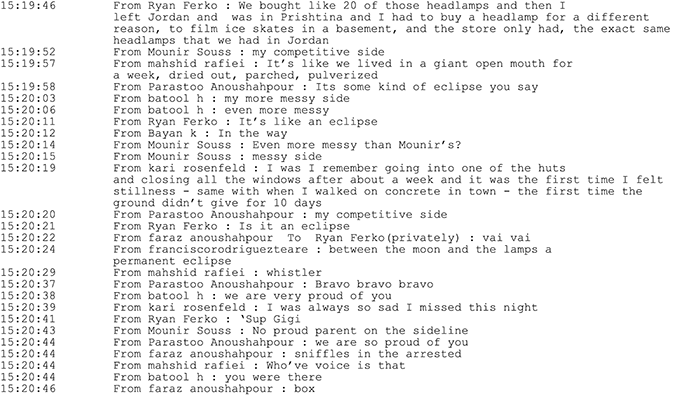
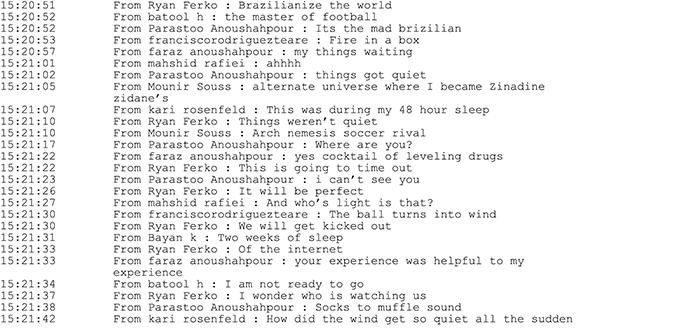


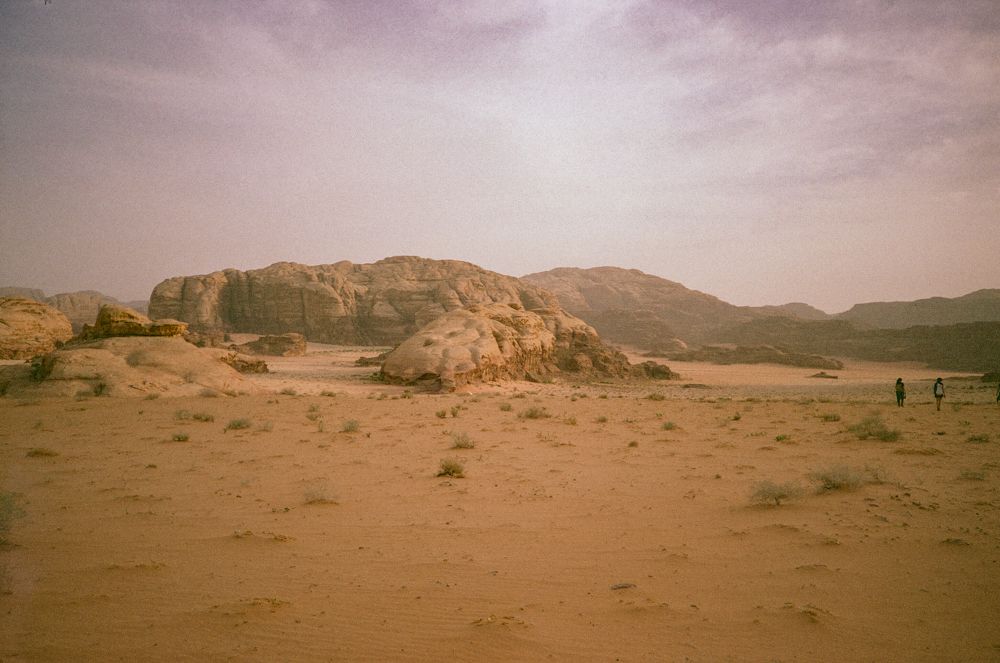
3 November 2020, Text chat excerpts: Parastoo Anoushahpour, Faraz Anoushahpour, Batool Elhennawy, Ryan Ferko, Batoul Ibrahim, Bayan Kiwan, Mahshid Rafiei, Kari Leigh Rosenfeld, Mounir Soussan, Francisco Rodríguez Teare, Merve Ünsal. Courtesy the Artists. Photographs: Kari Leigh Rosenfeld, 2018-2019. Courtesy the Artist.
| 27 October 2020 |
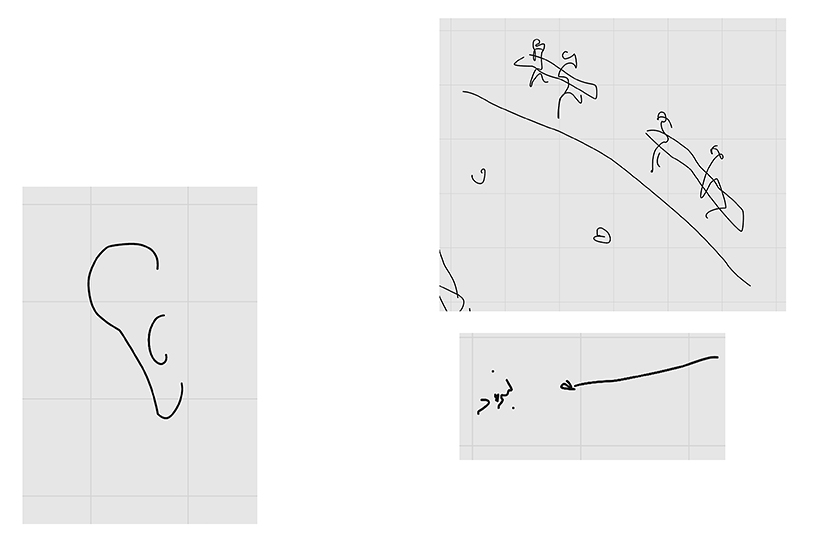
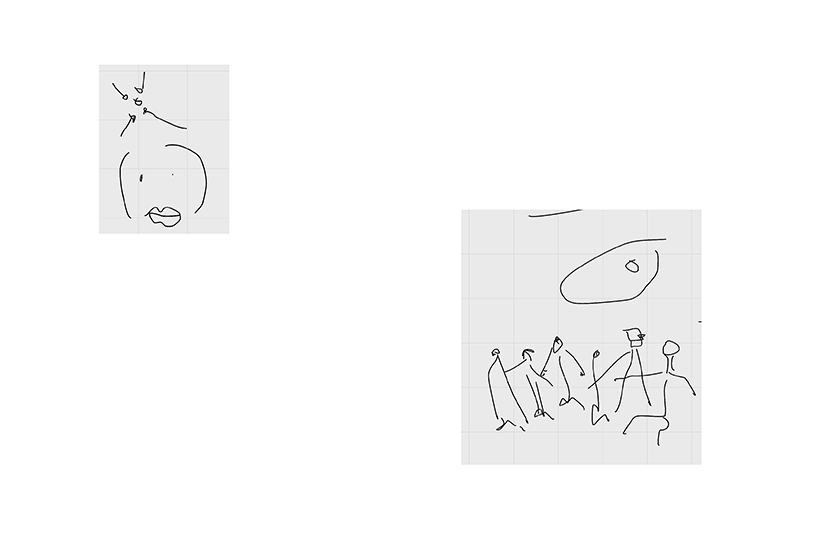
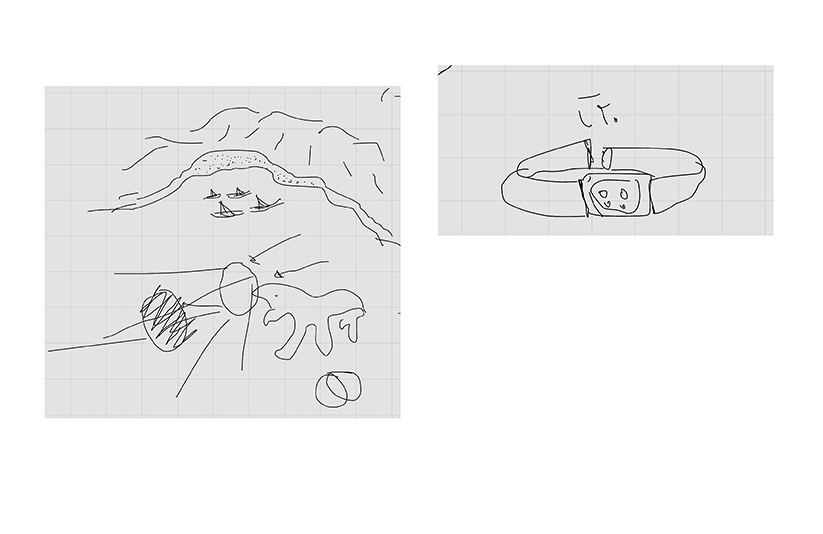
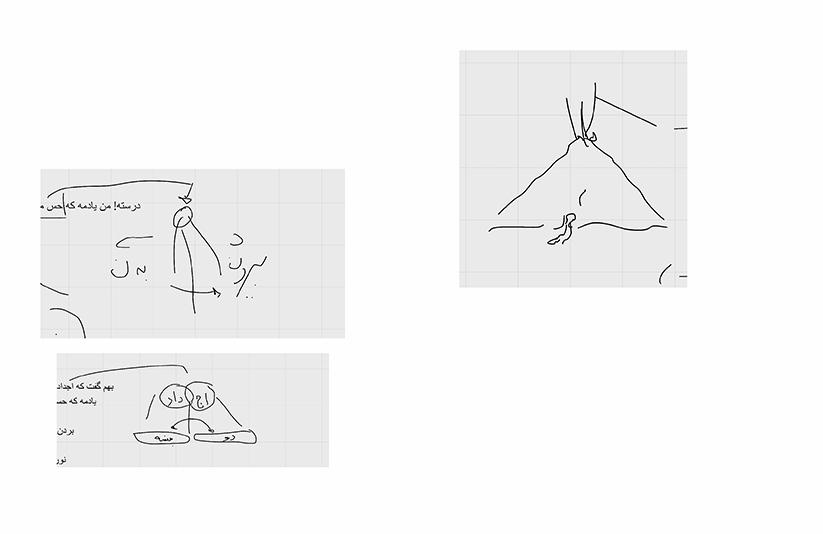
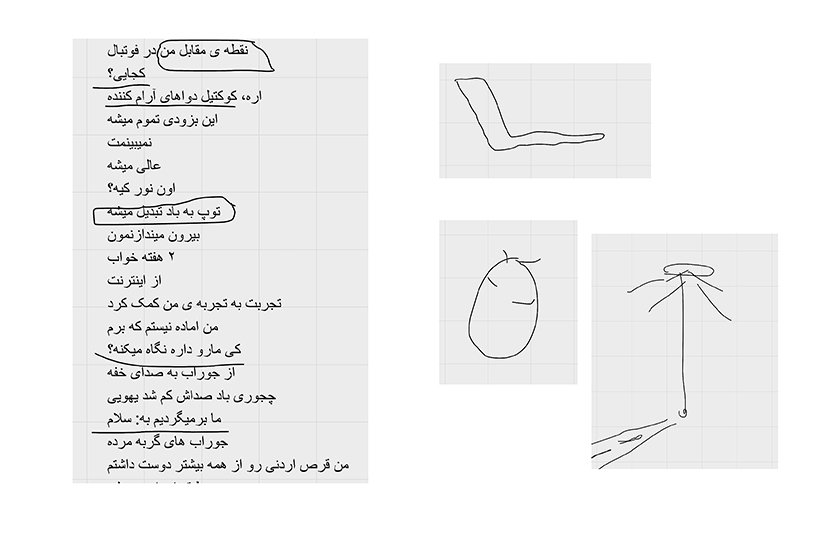
Images: Faraz Anoushahpour: Screenshots of translation drawings, 2020. Courtesy the artist.
| 20 October 2020 |
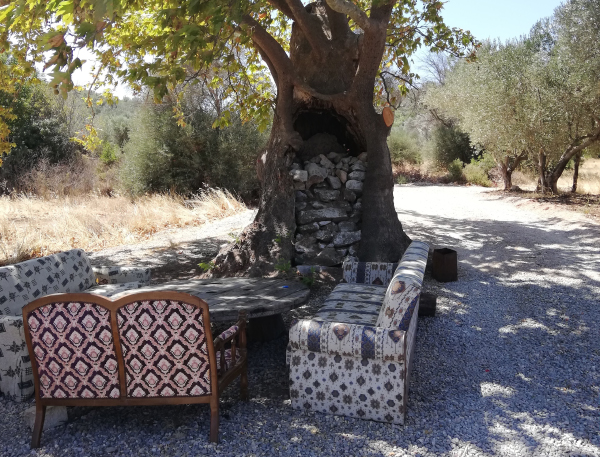
Image: Research trip to the Barbaros Village with the initiative Kendine Ait Bir Oda (August 2019). Courtesy Merve Ünsal.
While poring over my notes that I have been keeping since we first met in 2019—actually, I began before we even met, what this could and would be—, I heard a man—high-pitched voice, is that important for the aural autonomy of what I’m about to say—
*
I work on the surface between the media of images (both moving and still) and text. My fascination and dislike of these media stem from the same aspect—this surface is slippery as an artistic medium and I feel that I can at times latch on to this surface only through preconceptions whereas I hope to move and work more with intuition, meandering, and wonder; my media require constant unlearning of a way of relating to the world and this disjuncture is frustrating at its worst and transformative at its best.
*
“If you can be naked for this exercise it is best. Plan to be outside for 9 different sunsets. Getyourself comfortable and seated an hour before the sunset. For 50 minutes focus on your feet.Look at them. Where have they walked in this world? Are they tired? How do they smell? Can yousuck your toes? Give them a good taste.”
I jotted down, could this help me bring different parts of my body together so that I can’t separate my toes from my fingers, my stomach from my tongue from my ears? Is this an articulation of how all land(scapes) (inter)cradle each other?
*
In speaking about the “spiritual crisis of white America” civil rights activist Ruby Sales articulated the question of “Where does it hurt?” as being a critical question to ask in public life today. This simple yet deeply important question shifted my perspective forever—keeping artistic work at an arm’s distance is not an option today. The urgency of making work requires an engagement and involvement that can only be launched with a radical introspection of where, how, and when that work happens.
*
“we forgot about nature the same way we forgot about our parents.”
“We collect Spanish broom,
so that we can translate their smell into Turkish.
Today we will cover yellow smells, she says as
she throws a bunch of chamomile in her mouth.”
*
-responding, mirroring, nourishing, holding as urgently cooperative methods-
I contemplate two notions when thinking about the kind of care and critique. The first is embeddedness. Is it possible to be embedded within the needs and desires of another while caring and critiquing? In my opinion, there is something about the practice of radical empathy to be able to be immersed, embedded within the concerns and joys of another that can help comprehend and internalize the challenges of articulations and relaying. The second notion is cooperation. There is something about cooperating, working together for the same end, that captures the essence of the care and critique. While collaborative and collective modes of thinking are incredibly poignant and critical, cooperation seems to me to be more expandable.
Thinking about Donna Harraway’s entanglements, I have begun to wonder whether it is possible to be self-consciously entangled and whether this could be a mutual form of care and critique. I believe that there is an urgency to inventing syntaxes of being mutually entangled, which will begin with recognizing our already-existing entanglements and settling into new entanglements that we will cooperatively configure, shift, and adjust.
With the title of Arriving Elsewhere, we had already begun to cooperate as we all intuitively implied a need to be elsewhere, together, continuously—an ever-lasting process, procedure, and consequence of arriving.
*
The landscape cradles human bodies, historicities, narratives, and temporalities. The landscape transcends physicality to create a home for language that describes and holds all directions, actions and reactions. It constitutes an anchor. “Landscape” contains the action of “scaping”, as “landmines” include “mining.” Building on the militaristic agencies claimed over the land through mining (through planting landmines and mining the earth for materials) the “actfulness” of “scaping” and “mining” can perhaps be reclaimed, (by us?).
Could fragmenting, fracturing, rupturing be claimed as artistic methods of articulation? The unavailability or rather, to use Jalal Toufic’s terminology, the withdrawal of lexicons that had previously been available to us, before the surpassing disaster(s) is the backdrop of arrivals here to come.
*
The inherent “action-ful-ness” of the landscape perhaps means that partaking within and drawing out representations, metaphors, articulations from the landscape can only happen through cooperative entanglements in which we re-form, mutually arriving to softly dissolve syntaxes. In other words, perhaps the utter astonishment of the moment knits the idiosyncrasies of each and everyone within this group to produce while unproducing, work while unworking, construct while deconstructing that which was previously and will forever be unutterable outside of the (cooperative) group.
| 14 October 2020 |
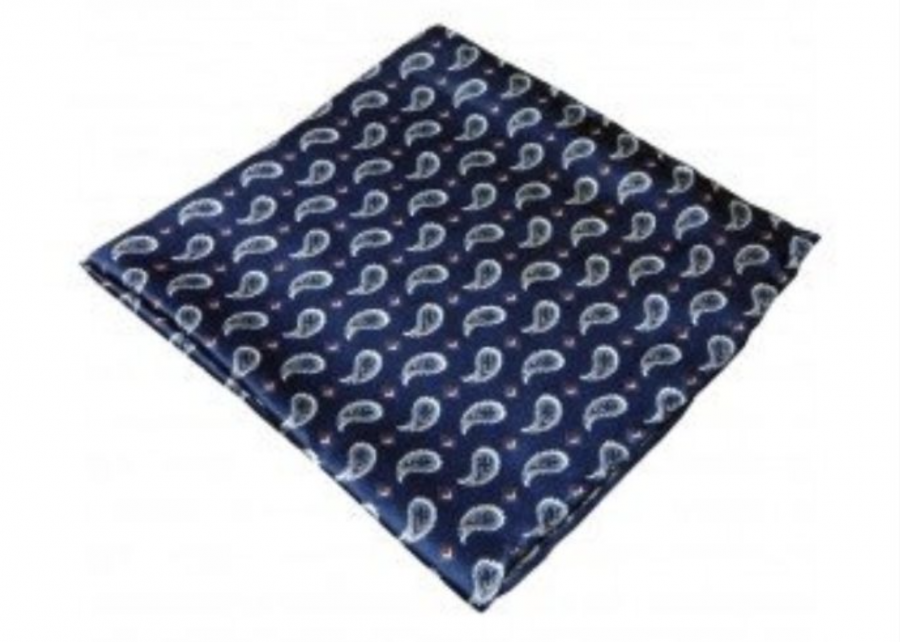
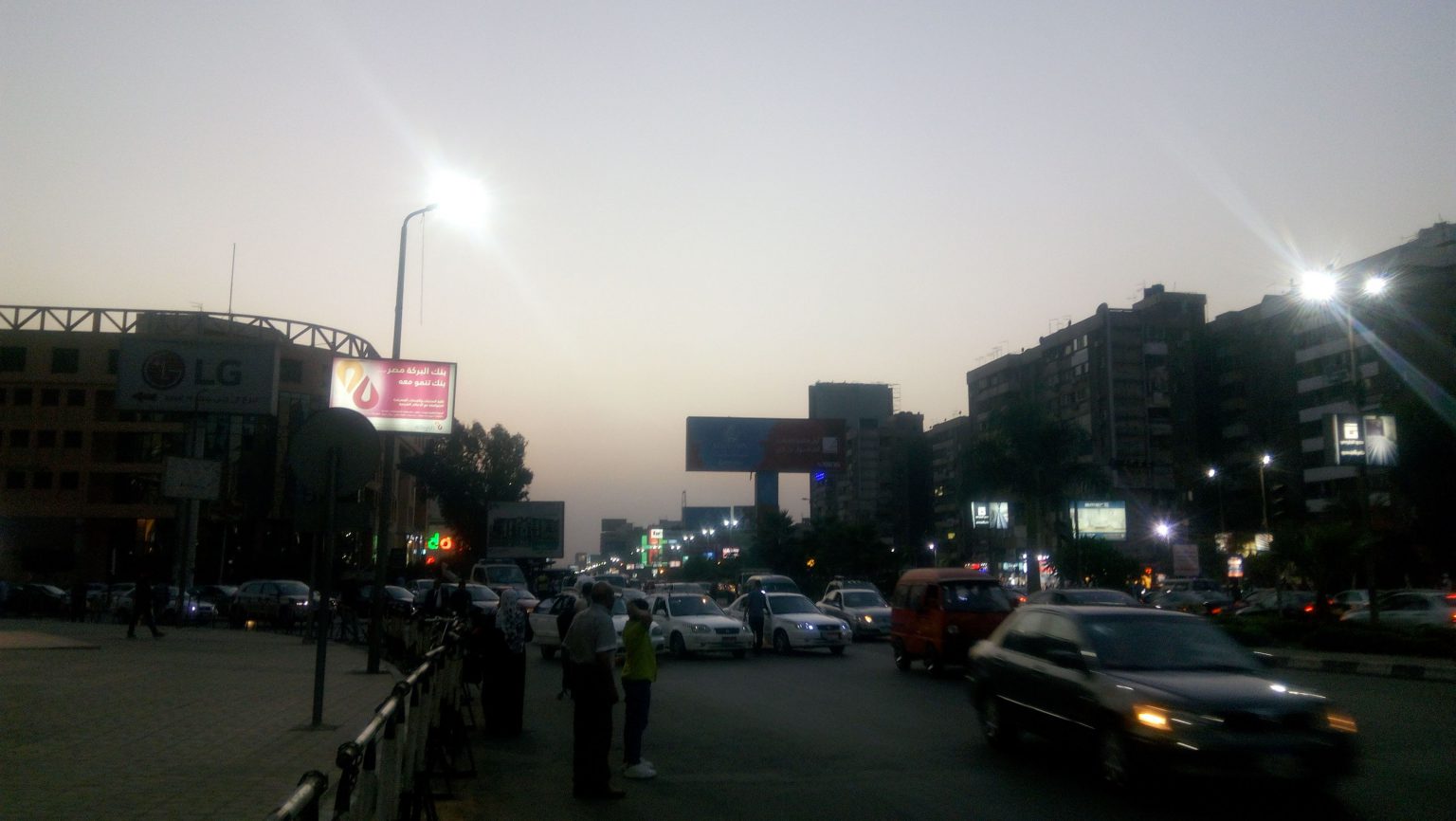
Images: Batool Elhennawy. Courtesy the artist.
And then we are in Cairo – a year before that – amidst the mess we understand all the words around, and its body language. When the Egyptian pound was devalued – economic collapse in Lebanon hitting Beirut most clearly – 46 degrees in Baghdad today. Certain elements of our character can keep themselves regardless of the context, like the neatness and the multitasking. He told me he got this strange idea that someone needs to make a film about choosing another temporality but with an awareness of the cycle of time. He also had a friend over when the doctor came, I asked her about why the big park in their neighborhood was shut. She said: “the guy who had it rented from Misr for Housing and Development had a lawsuit filed against him for 9 million pounds of tax.” She and her husband had a complicated marriage, and they got along so fucking well. He was born on the same day as my father.
You inspire me to not shy away from my desire and dedication for visibility for a kind of female character interaction and female reality that is miles away from the fatale vs. nourishing figure trope. just talking, about something, with accurate information. The rest is the rest. For later or not even that. Even when I am geographically so far from what I am used to, but stand my ground if you look at me like you believe we should do it.
| 18 September 2020 |
How to respond to crisis? Who is expected to respond to what? What expectations can you refuse? How can you find the right time to meet when you don’t wake up together?
Los Angeles at 11am, Toronto & New York at 2pm, Madrid & Berlin & Cairo at 8pm, Istanbul & Amman at 9pm. Eleven of us spent ten Tuesdays in a row this summer arriving in a place on the internet, filling it with our images and our voices. Now this uncertain summer is fading into this uncertain autumn. We do not arrive with answers, but can point towards something shared, a deeper entanglement, pressure points and positions that we approached as a group, again.
We first came together last year under the premise of a workshop. Maybe a residency. It still feels like these are the wrong words, since words often feel wrong.
In April 2019, between Amman and Wadi Rum, we focused on something slow and latent. What if we could draw all of our attention to different ways of both being in our own bodies and in a place together? How long could we stay suspended in that state, in-between arriving somewhere and articulating something about being there? We spent ten-days attempting to hold ourselves in this in-between. Maybe we never left that. We didn’t form a public response, feeling that doing so would cause this in-between to solidify and appear unrecognizable. We had a time slot in a film festival to present our work to an audience and we filled it with quietness.
~~
I am in : )
missing everyone so endlessly <3
~~
in in yes
ever,
~~
Amazing — looks like everyone is free on Tuesday, so let’s do that
~~
a fire escape can be made of wood
a la mala
a map that’s a spectrum map
a guy split in half in a car that gets diluted
a page that asks me if I have real estate fortunes in the country I moved to, in the country I came to ask for, hopefully, social security
a roundabout by the sea
a salad being prepared for a long long hour
a sun I stole from my mother
a whole film program about casting friends
~~
Hi everyone,
How are you? Hope you’ve been well and healthy wherever you are. It’s been a long and winding year since we first met in the desert. This past year alone, seems like a decade condensed into a couple of months. It’s been strangely sobering, but above everything we miss you all so dearly.
The three of us have been back in Toronto, after being away. We are slowly getting back into the flow of working and thinking. Recently, we were approached by a gallery in Toronto, Mercer Union, to start an online collaborative project unfolding over the summer. Like many institutions right now, they have been shifting their programming to respond to the ongoing pandemic, and they are planning to use the web platform Miro as a blank space for collaborative thinking.
This is envisioned as a place of gathering and sharing through virtual workshops, screenings and live conversation. It is by no means a fair substitute to what constituted or gave form to our initial gathering but in some way we thought it might be an interesting opportunity for us to think about Arriving Elsewhere again.
~~
a tape on reincarnation
reincarnation level 3
thai basil seeds
a stick of incense
colour 35mm negative
~~
And so, in summer 2020, we continued: writing simultaneously, reflecting on our separate selves, threading words through someone else’s voice, setting someone else’s voice to someone else’s image, translating to another’s language, stepping into and out of a frame. The difficult balance of remaining accountable individuals, honest and vulnerable while embracing a messy, shared elsewhere. Leaving thoughts and signals for others, never knowing where certain momentum would take them, or if they would recede into the severe ambience of the internet, or buckle under the expectations of a response.
We will continue into the autumn to sift through images, sounds, and words, addressing the questions they raise about being in the world as individuals within the view and earshot of others. Into October and November, we look forward to opening this ongoing collaborative exchange out to a wider audience through an upcoming series of videos, scripts, and documentation of events. Specific dates and details will be confirmed soon.
~~
the bag of heroin was found under your porch, you called me for advice
the boat as the kitchen in your new apartment
the desert was bright because it was a full moon
the different mother tongue is potent, heavy, professional, and slick
the end of the day feels green
the film I want to make about police horses in the city
the lake drains into the ocean
the moon moves the entire surface of the ocean
the most beautiful film I’ve seen this year
the object I loved most, a sun that my mother gave me
the only thing I can think about is the day behind and maybe some coffee
the something of that film is like a list – a bullet point list – in the most beautiful way
the streets are only wet like three days a year here but we usually make the most of it
the timeline is already fucked but it’s kind of the best part about it
the wrong way round
&
Batool Elhennawy, Batoul Ibrahim, Bayan Kiwan, Mahshid Rafiei, Kari Leigh Rosenfeld, Mounir Soussan, Francisco Rodríguez Teare, Merve Ünsal
